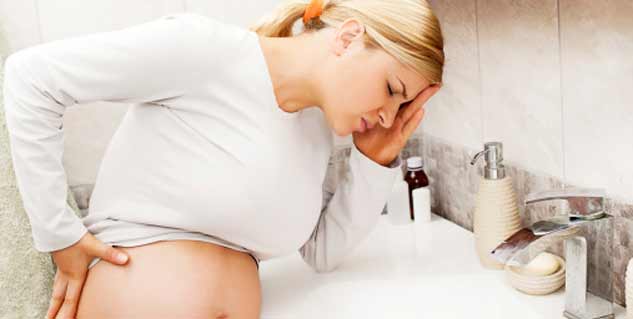Pregnant and Everytime I Eat I Get Sick

Nausea is one of the commonest symptoms of pregnancy and it often occurs in pregnant women after having a meal. It is more common in the first trimester of pregnancy and usually disappears before the start of the second trimester. By following certain treatment procedures, you can significantly reduce the nausea symptoms during pregnancy. It is essential to know the trigger food items that can cause nausea. It is best to prepare a chart on a daily basis to understand the trigger food items.

Causes of nausea after eating in pregnancy
Medical science is yet to arrive at the exact cause of nausea after eating in pregnancy, but they are believed to be the following:
- Increase in hormone levels during pregnancy leading to acid reflux in the body.
- Changes in digestive system. The balance of bacteria in the gut is changed which means food stays for longer period of time in your small intestine. This leads to discomfort in the stomach adding to the causes of nausea
- Laxity of the stomach muscles increase during pregnancy. If you have greasy food, the already sluggish digestive system functions even slower. So, it can lead to nausea.
Also Read: Best Foods To Eat And Avoid During Pregnancy
Risk factors of nausea after eating during pregnancy
Morning sickness or nausea may be a common condition during pregnancy but some women are more likely to catch it than others. Some risk factors of nausea after eating in pregnant women are:
- History of migraine or other forms of headaches in previous pregnancies.
- If you are expecting twins, the chances of nausea increase.
- Some health authorities even state that women expecting a girl are more likely to have nausea than those pregnant with a boy.

Watch out for these symptoms of nausea
If you are suffering from severe nausea, beware of its after effects. It can result in dehydration or weight loss. This is because of a severe condition hyperemesis gravidarum for which medical treatment is necessary. You may have to take intravenous fluid or some other medication. Consult a doctor immediately if persistent episodes of nausea occur. You may have to take intravenous fluid or some other medication. It is essential to keep a tab on these conditions as it may affect the health of the baby.
Some symptoms of this severe condition to watch out for includes:
- Vomiting for many times during a day and night. Also, discomfort in sleeping can be a major symptom.
- Dark or blood spots in the vomitting.
- Fever accompanied by abdominal pain.
- Unable to hold fluids down for even 24 hours.
Also Read: Precautions during 1st Trimester of Pregnancy
If you find yourself with any or all of these symptoms of nausea, visit a physician immediately as diagnosis and medical treatment is required right away.
As most women are likely to discover that their spells of nausea disappear after the first trimester, it is important that they know the time for which they need to endure this. Most women notice their bouts of nausea decrease, or even disappear completely, after the first trimester ends and hormone levels stabilize. If you are carrying twins, you may be in for even more nausea because the hormones running through your system are also doubled.
Read more articles on Women's Health
Pregnant and Everytime I Eat I Get Sick
Source: https://www.onlymyhealth.com/pregnancy-symptoms-nausea-after-eating-1342807262